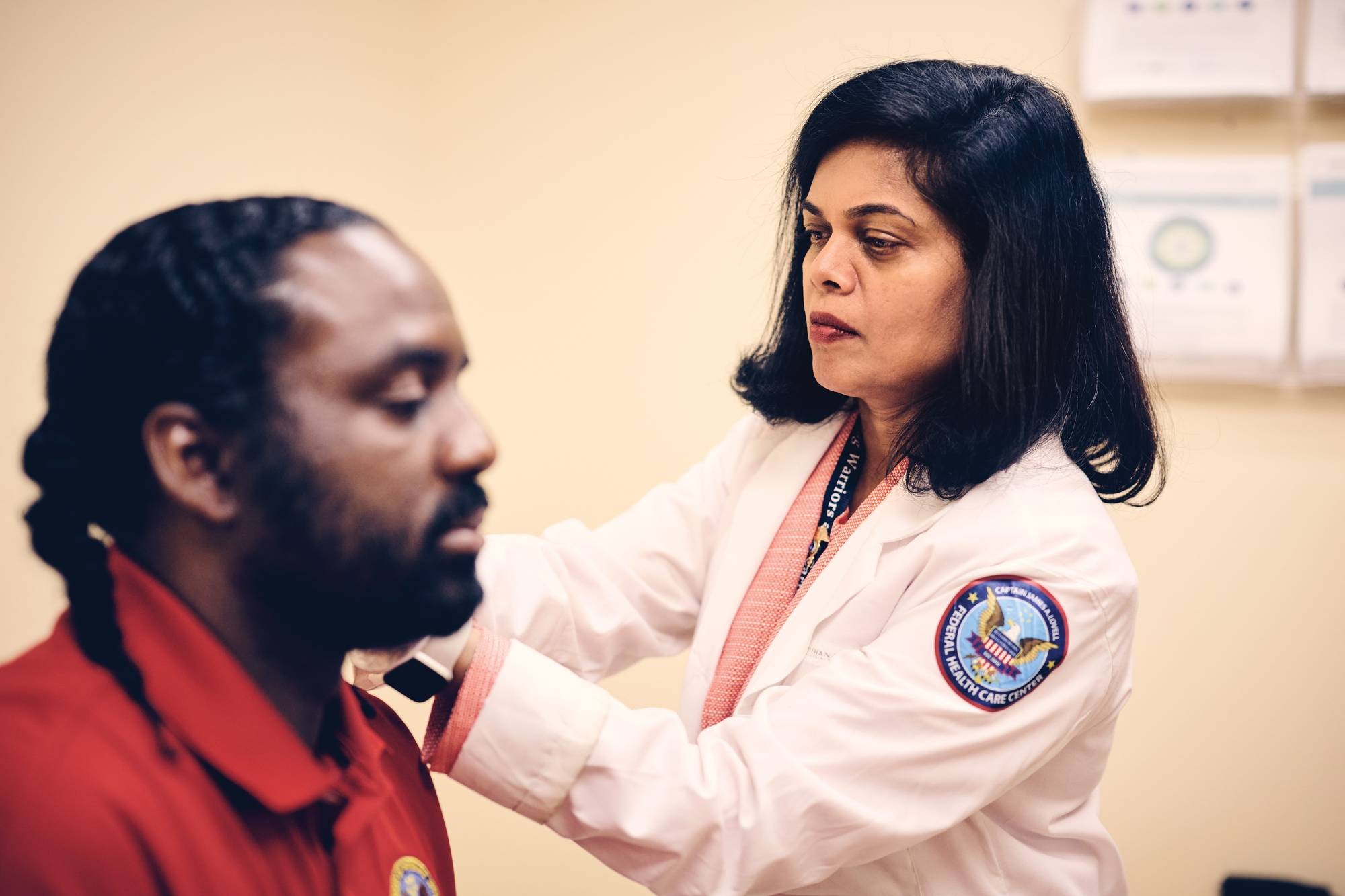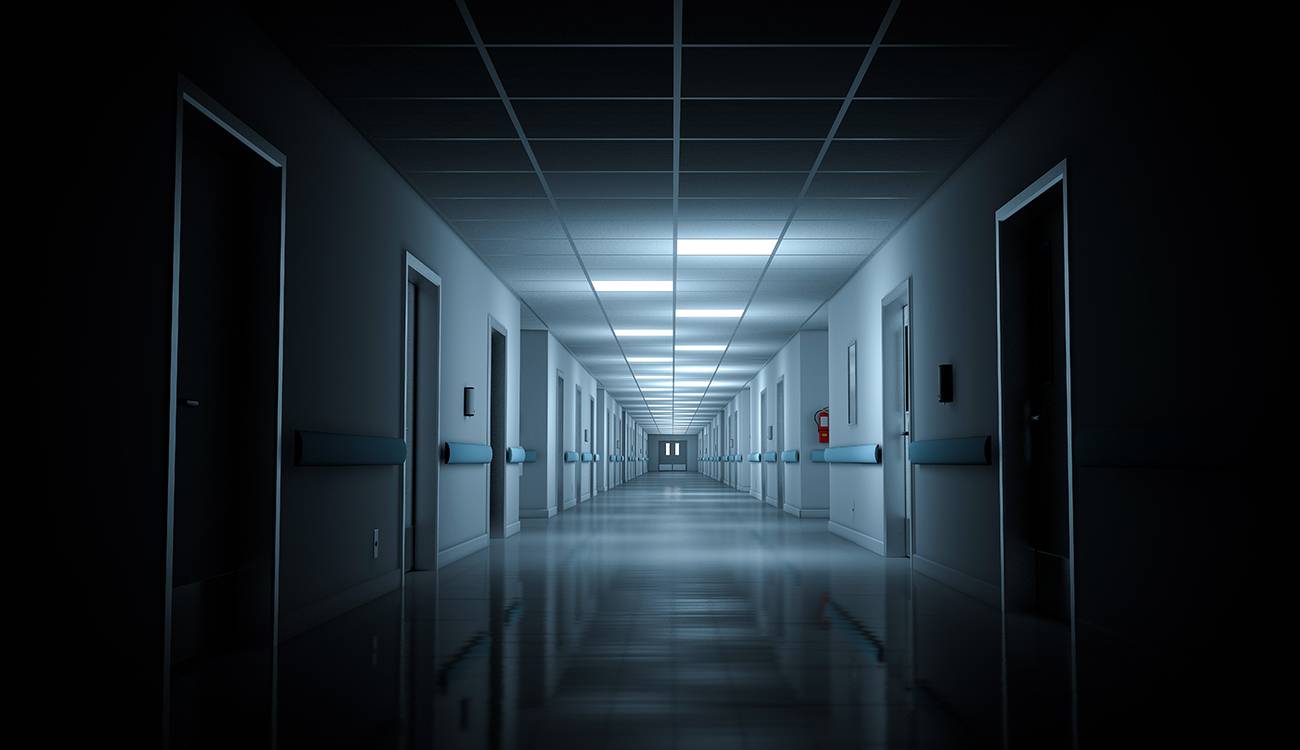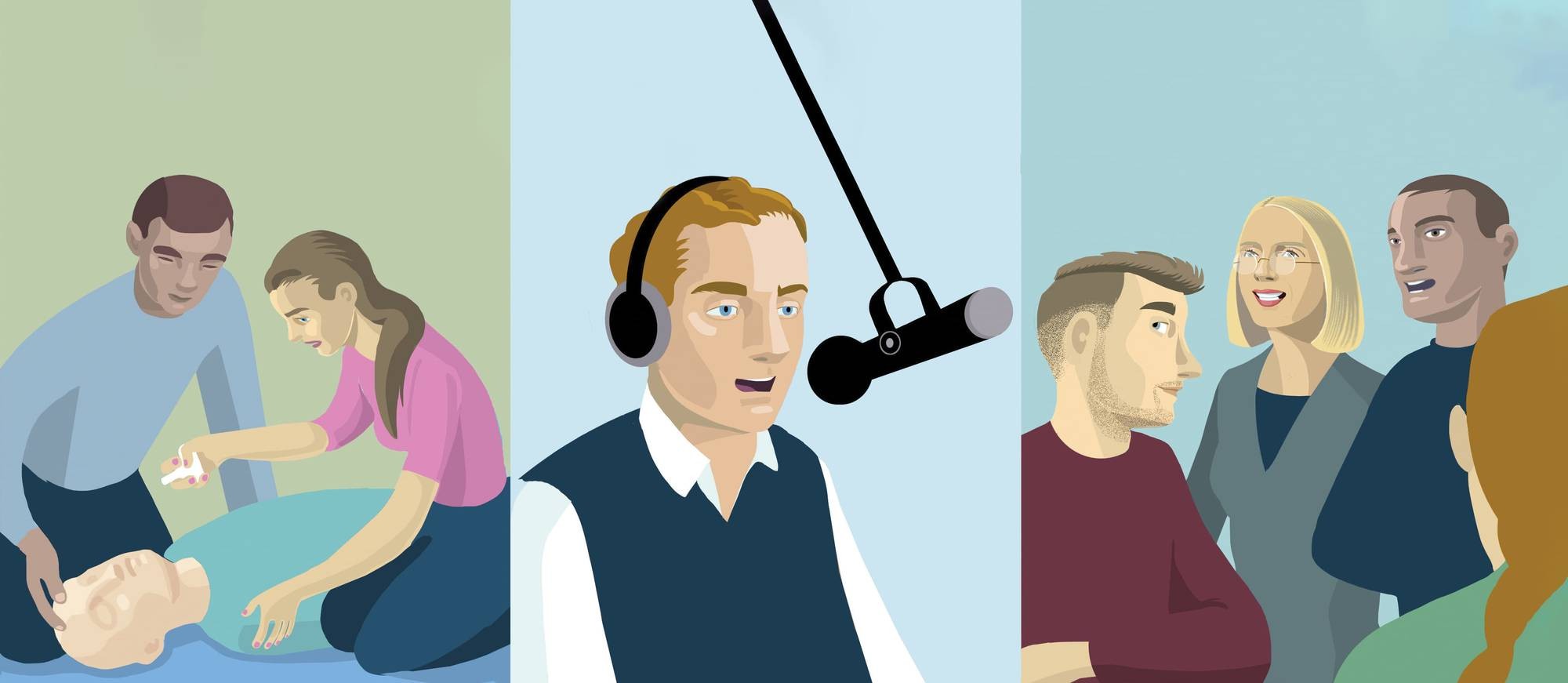Bharathi Swaminathan, MD, is the chief of research and former department head of physical medicine and rehab services for the FHCC; Chicago Medical School discipline chair and associate professor, PM&R; EMG/TBI fellowship director; and site director, PM&R residency program.
Author Page
Won’t You Be My Neighbor?
RFU partners with Lovell FHCC to care for veterans and military members
Photo by Max ThomsenCommunity & Service
Rosalind Franklin University and Captain James A. Lovell Federal Health Care Center (FHCC), our nation’s first fully integrated federal healthcare facility, are neighbors in every sense. We sit side by side in North Chicago, bound by more than 50 years of academic and clinical partnership. RFU provides cutting-edge education and research, while the FHCC, which serves both veterans and active-duty military and their families, offers real-world clinical training environments and patient care. We share a common vision for innovation in health care and improvements to patient care and community health.
As both a physical medicine and rehabilitation (PM&R) physician at FHCC and a clinical educator at Chicago Medical School (CMS), I’ve dedicated my life to helping survivors of traumatic injuries reclaim their function, their independence and, often, their sense of self. My specialty practices at the intersection of body and mind. What sets us apart is that we don’t just focus on the injury — we focus on the person. We orchestrate a whole team, guiding rehabilitation with a holistic, integrated approach that looks at everything from physical recovery to mental wellness.
A lot changed in 2007. A directive came down from Washington as veterans started coming back from Iraq and Afghanistan with a multitude of symptoms. No one knew where to send them. Neurology? Psychiatry? Primary care? Eventually, the VA recognized that PM&R needed to lead the charge. We’ve been doing that with help from CMS’ PM&R fellowship, residency and summer research internship programs.
PM&R is a good fit for the VA, which uses the Whole Health approach, proactively optimizing well-being by considering a person’s physical, mental, emotional and social health. Instead of asking, “What is the matter with you?” we ask, “What matters to you?” We empower them to take the driver’s seat, and we include the family as part of our team.
One patient still stands out to me. He came in with what initially sounded like a straightforward case: mild traumatic brain injury (mTBI). He had headaches and trouble sleeping — common complaints post-deployment. We scheduled a thorough one-hour intake, part of our standard approach, which includes a deep dive into their full history.
The patient was under immense stress — trying to support a young family, struggling to build a new side business, and facing a cultural and communication gap with his wife, an immigrant from the Philippines. He said something that made me freeze: “I make bombs in the basement.”
That moment demanded immediate, coordinated action. I stepped out, contacted psychiatry, and together, we decided the safest course was to personally walk him over to mental health. Fortunately, in the VA system, we have direct access to psychiatric care. If our patient hadn’t agreed, our crisis team would have stepped in. But he did agree. He understood I wasn’t passing him off, that I was walking with him.
Today, he’s thriving. He still takes part in our comprehensive team, which, in addition to PM&R, includes neuropsychology, social work, pharmacy, speech pathology, audiology, physical therapy and neurology. He still deals with mTBI-related issues, but we’ve narrowed the long list of complaints down to manageable pieces. He now has three children, one of whom recently joined the Marine Corps. He’s a proud father and a proud veteran, and we’re proud to walk this journey with him.
We follow up regularly — every three months. Our social worker calls. Our psychologist checks in. It’s more than routine care. It’s a relationship. As our CMS PM&R residents and fellows learn, that’s what makes the difference. The trust. The continuity. The message we give every patient: “We are here to care for you.”
Because we’re not just treating injuries — we’re restoring lives.
Published November 21, 2025

